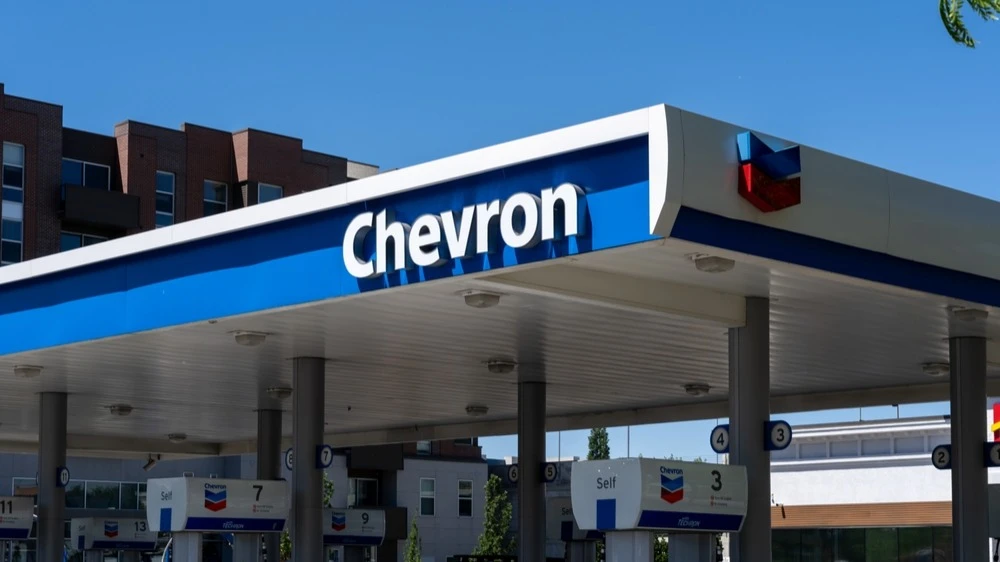Chevron to complete $53 billion purchase of Hess after beating Exxon
Chevron shares jumped more than 2%

Chevron won the right to finalize the purchase of oil and gas giant Hess for $53 billion after winning an arbitration with ExxonMobil, which tried to block the deal. The deal will remove strategic uncertainty for Chevron and strengthen its position through access to the largest field in recent decades with reserves of more than 11 billion barrels of oil. For Exxon, the loss is not critical.
Details
Chevron won the right to quickly close its $53 billion purchase of Hess by winning an arbitration dispute with ExxonMobil at the International Chamber of Commerce, CNBC reported. The ruling was handed down on Friday, July 18, and puts an end to a long-running conflict over one of the world's largest oil projects - Hess's stake in the Stabroek field off the coast of Guyana. The deal was announced back in October 2023, and Chevron was preparing in advance to complete the deal within 48 hours of the arbitration verdict and close all organizational issues in 45 days, notes Reuters.
The conflict between North America's two largest oil and gas companies was unprecedented in an industry where it is customary to jointly reduce risks and share costs, emphasizes Bloomberg. Exxonattempted to block the deal and argued that it had a right of first refusal over Hess's 30% stake in the Guyana consortium. Chevron, for its part, insisted that this right only applied to single-asset deals, not mergers. Exxon said it disagreed with the International Chamber of Commerce arbitration panel's ruling but respected the process. "We created significant value in the Guyana project and owed it to our investors to exercise the right of first refusal to protect that value, especially at a time when no one yet knew how successful the project would become," Exxon stressed (quoted by Reuters).
There is no appeal at the International Chamber of Commerce, Reuters emphasizes.
Now Exxon manages the project in Guyana and owns 45% in the offshore block Stabroek, producing about 650 thousand barrels of oil per day. Partners in the consortium are Hess with 30% and China's Cnooc with a 25% stake. The companies plan to increase production to 1.2 million barrels per day by 2027, making Guyana one of the countries with the highest per capita oil production in the world, notes The Wall Street Journal.
What does that mean
The win was a key victory for Chevron, removing the strategic uncertainty that had been weighing on the company's stock, Bloomberg notes. CEO Mike Wirth acknowledged that it was the uncertainty surrounding the deal that was a "significant factor" in the weakness of quotes compared to competitors. For Chevron, the result of the arbitration was critical: the company is restructuring, cutting costs and plans to lay off about 8,000 employees by the end of next year, WSJ adds. Wirth's strategy to improve the company's performance is directly related to this purchase, one of the largest in the energy sector in the last 10 years. The deal's main asset is a stake in the Stabroek block off the coast of Guyana with more than 11 billion barrels of oil reserves, one of the world's fastest-growing oil regions.
Investors and analysts have previously said that without Hess, Chevron might not have enough assets to grow oil production beyond 2030, and if the deal falls through, the company would have to find another large acquisition target.
The purchase of Hess and its stake in Guyana significantly improves the quality of Chevron's oil assets outside the Permian Basin in Texas and New Mexico, narrowing the gap with Exxon, said Fernando Valle, managing director of Hedgeye Risk Management. "The addition of Guyana was critical for Chevron because the company had a fairly modest portfolio outside the Permian Basin," Bloomberg quoted Valle as saying.
For Exxon, the loss in arbitration was not a serious blow: the company remains in a strong position after record profits in 2022 and record payments to shareholders in 2023 in the form of dividends and buybacks, WSJ writes. Even with the drop in profits last year, Exxon continued to actively return capital to investors. Earlier, the company said it was confident it would win the dispute, but emphasized that if it lost, it would continue to operate in Guyana as usual.
In addition, the completion of the deal was a win for arbitrage traders who were betting on the difference between Hess' share price and the agreed exchange ratio with Chevron, Bloomberg notes. Hedge funds including Millennium Management, Pentwater Capital Management and HBK Investments LP have invested billions of dollars in anticipation of the sports resolution, according to the agency.
What about the stock
In trading on July 18, Chevron's shares jumped by 2.6% to $155.5, but then lost half of the growth. Compared to the start of 2025, the company's securities are now 5.6% more expensive. By comparison, the main U.S. stock index S&P 500 for the same period added about 7%.
Exxon, on the other hand, fell more than 2% to $109.3. That was their lowest in two and a half weeks. Since the beginning of the year, the company's market value has risen only 2%.
Hessshares are up 1.4%, and they're up 12% YTD.
This article was AI-translated and verified by a human editor
